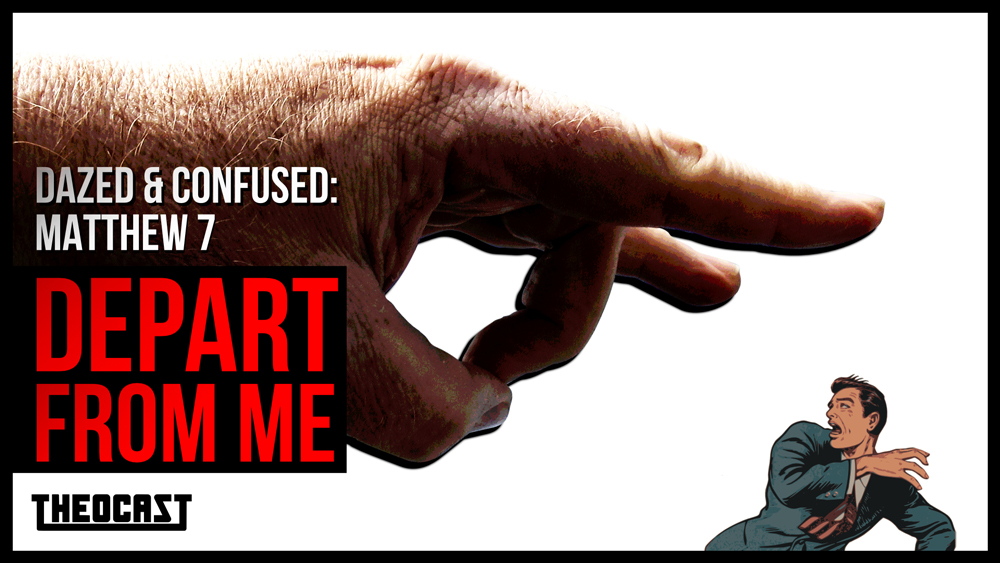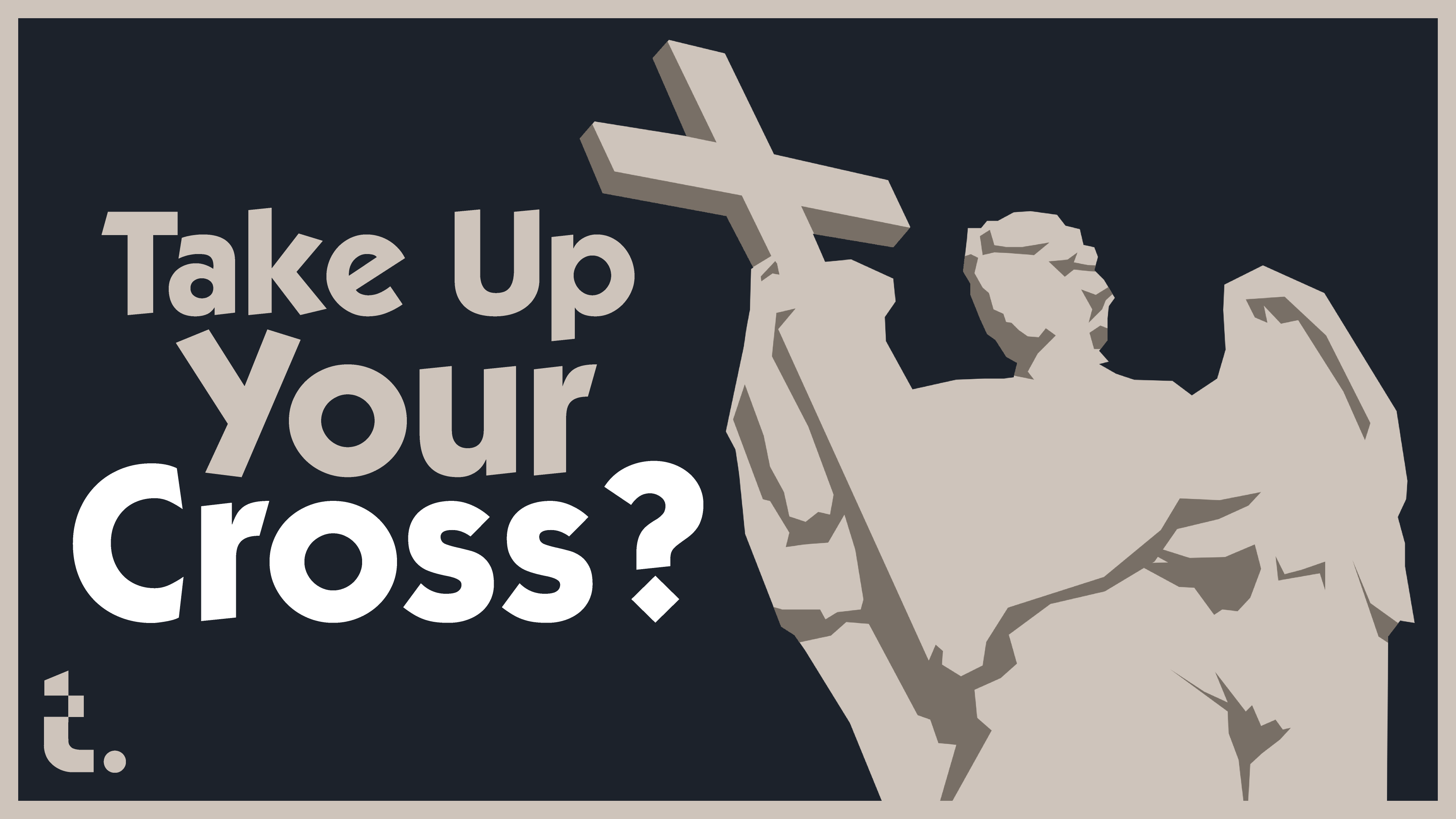Listen to MEMBERS Episode
Jon Moffitt: Welcome to the members’ podcast. As always, Justin and I are so thankful that you are here.
Justin, one of the things that you and I both experienced on a weekly basis is people walking up to us going, “I didn’t know what I didn’t know. It wasn’t until I could taste it, then I saw it.” Explain what these people mean when they say that.
Justin Perdue: Coming to a service at a confessional Reformed church, like the churches where Jon and I are pastors, it is very much a taste-and-see reality. In particular, a number of people have come to our church and they are already Calvinists in their theology. In a very pointed way, people who are Christians and who have been in pretty robust Calvinistic contexts come and expect it to be basically the same way at CBC or at Grace Reformed or Christ Community where Jimmy is—and it isn’t. They say, “There’s something different about this place. There is something different about this church and these services.” They’re trying to put their finger on it and they just can’t. They’re asking you questions and that’s when it starts to come out. We start to have this conversation.
I think what people find refreshing in our context and yours, Jon, is that Christ and the gospel permeates every aspect of the Sunday morning gathering. It begins from the time that they are welcomed to church where our need and our sin is acknowledged, and Christ and his sufficiency and grace are heralded. We’re welcomed to the gathering that way. There is no confusion here: none of us are sufficient and none of us have obeyed well enough. We actually understand that we are desperate and bankrupt and needy, and Jesus has met all of those needs, and now we’re going to worship.
Then, in our context, we’ll have a time of just brief silence having acknowledged how much we need the Lord. We take a moment of silence to prepare our hearts for what we’re about to do. Then we read God’s word over the people in a call to worship. Then we pray a prayer of invocation from the jump and just ask God to be with us in everything we do, to inhabit these ordinary means, and to minister to us.
Then we’re off into a confession of sin and absolution. We’re off to a confessional piece from either the London Baptist Confession or an ancient creed. It’s simple stuff: we’re reading Scripture, we’re praying corporately, we’re singing songs, and then it’s the message, then after the message is the Lord’s Table every Sunday. The emphasis through all of this is Christ for you—he’s sufficient for you and you’re safe in him. We’re preaching God’s word from a redemptive-historical perspective with Jesus at the center. Every sermon is saturated with Christ and the gospel. We’re not just trying to tag the plan of salvation someplace or insert it someplace in the sermon. The whole sermon is preached from a perspective of how do we understand this passage in light of Christ? Then we offer the people Christ in the Lord’s Table. “Come, the table is not for the perfect; it’s for the weak. If you’ve blown it, the table is for you. Run up here and receive Christ in the bread and the cup, and what he has done for you. This is about God’s faithfulness to you, not your faithfulness to him.” Then we have singing around the table and then we close with a benediction. That’s a general service at CBC.
The takeaway of people is always something like, “Brother, I was so encouraged because this was all about Christ.” Then they want to understand what it is that’s different. As they meet the people, they say that everybody is so warm and kind, and it feels safe. The people are honest and transparent. It’s always such a fun conversation to talk about worship, but then to also talk about this efficiency of Christ and what that does in driving and shaping a culture or a congregation, and what it means for our lives together. It’s only after those conversations and people have been with us for a while that they taste and see all these things. Then it clicks. They realize what they have been missing, but now that the toothpaste is out of the tube. They can’t get it back in. Now that they’ve seen it, they can’t unsee it. That’s the experience of many people that come to us and I’m sure it’s the exact same thing for you, Jon.
That was a long explanation, but that’s the way I know to describe what those people’s experiences were.
Jon Moffitt: I’m not going to add much. Justin and I, our services are almost identical. They’re not identical, but I would say they’re pretty close. What we’re trying to get at is that when you go to certain churches, and I can speak from experience here, I’m not being critical. With COVID-19, I’ve seen even more than I care to even admit how much I’ve seen.
Depending on the style of the church, there’s this excitement. They’re trying to create an atmosphere or experience where it’s high energy, or it could even be solemn where we’re creating an atmosphere of respect. They’re trying to create this experience and if you don’t end up having that experience with everyone that’s around you, you feel less than everyone. You feel that something is wrong with you, or something happened to you that you didn’t feel what everyone else felt, or you end up having that experience.
I can remember one of my new guys that have been coming. He said that what was so disappointing for him is that he wanted Monday through Saturday to feel like Sunday morning at 10:00 AM—and it didn’t. He wanted to experience that high-energy emotion, what the music brought, and what those sermons brought from Monday to Saturday as well. What it becomes is a spiritual rah-rah moment where we are trying to motivate you to think and do certain things. When you walk out of the door, you fall flat on your face Monday morning because that’s not reality. What the church should be offering you is a hope that sustains you through the week. As you feel the weight of your sin, your brothers and sisters are there to carry the burden and you’re there to carry their burden. What you learn is that the gospel draws the people of God together—it doesn’t individualize them. As a matter of fact, it makes you scared to be individualized because you know you aren’t strong enough to be alone.
I felt this last night when I was at men’s Bible study. I was exhausted. I was so tired and I didn’t know if I had the energy to do it. When I left there, I didn’t know if I would be able to go to sleep because I was so energized. I was energized not by some emotional conversation we had. It was so clarifying how Christ had come in and minister to the weak and feeble that night, and that none of the men that showed up there came in strong; they were confessing sins, they were talking about their struggles, we were talking about people who are dying of cancer, and children that had passed away. It was a really, really heavy night and the hope was Christ will help us through this. Together, we will make this through. And it was the study that we’re doing on the Lord’s Table. It was so unbelievably encouraging because it wasn’t us telling each other how we can do better this week. It was us telling each other how we get through this week by grasping onto Christ. When our grasp is a little weak right now, others can come over and hold us. Others hold us up a little bit now because we are feeling weak and feeble, and we don’t have to do this alone. The unity that I felt last night is what energized me because I realized I’m not alone in my struggle. My brothers are here to love and care for me, and they’re here to give me Christ. That is so different than making a list of five things to do better this week during COVID-19.
Justin Perdue: I had a couple of really sweet meetings yesterday with people who were visiting the church, but I also had a wonderful sort of final meeting with our elder development guys for this cycle through. It was just so edifying and encouraging for me to talk with those men. Three of these guys who have gone through elder development have already been put forward by our current elders to serve as pastors in our church— and we’re thrilled about that. But just the conversations about our brotherhood in Christ, our need of him, and his power and sufficiency in the nature of pastoral ministry.
We were reflecting back together on a meeting that we had had recently. We were going around the table with every guy talking about his life, talking about his struggle, talking about his weakness, talking about his marriage, etc. We’re encouraging one another in Christ and praying for each other. It’s that kind of honesty and openness that when the gospel permeates every aspect of the church’s life, and when the sufficiency of Christ is heralded, it makes it safe to be that way. It is such an edifying thing. It’s a comforting thing because we realize that we’re not alone and we’re not called to bear these burdens alone. We understand that we are not uniquely messed up; everybody is battling these things. We’re able to pray for one another, lock arms together, and ultimately point one another to Christ who is our hope and righteousness.
There is something that is hard to describe. I know you’re trying to describe it and I’m trying to describe it, but it is incredible. Is it emotional at points? Absolutely. But it’s not just this emotional high that you ride, it is this rock-solid thing that’s always there underneath you. We’re not trying to create some experience through a gathering or through some meeting where you can just ride the high for the rest of the week. That’s not at all what it’s about. It’s about giving people and extolling the power, sufficiency, mercy, and grace of Jesus that will be with them and under them on their best or worst day.
What is it that’s different? It’s a different emphasis. It’s a different tone.
I say this when people visit our church and we meet and talk: there are other churches in our area that are trying to create a similar culture to what we’re trying to create. But the culture is not directly driven by the doctrine. They’re trying to create a culture of compassion, they’re trying to create a culture of openness and transparency and honesty, but they’re going about it in this roundabout way, or they’re creating it through this kind of cult of personality or through some very charismatic leadership or something. The gospel is there but I tell people in our church that the stability and safety of the situation are because the doctrine and the culture are inextricably linked together, and the doctrine is directly driving the culture. That will be sustained over the long haul of the church’s life. It will grow with us. It’s just a much more stable and safe situation.
I think that’s a difference in a confessional Reformed context, and in other church contexts too, is that the theology and the culture of compassion and transparency are inextricably linked together. I think people taste and see that reality as well as they come and experience it over the course of time.
Jon Moffitt: Hopefully this brings a little bit of light to the conversation. What we’re trying to do is bring relief to you, especially for those of you who are struggling and can feel something’s off or something’s wrong. Why is this not feeling right? What am I missing? Those are good feelings. At times it means that you are starting to understand the emphasis of the Bible, which is Christ and him crucified, the emphasis of the church which is a people who are dependent upon each other resting in the Spirit’s power. The Spirit comes and does this work through the administration of the gifted people: the teachers, preachers, etc. Paul says that their purpose is to equip the saints for the work of ministry. People don’t understand that. They think the preachers and teachers are to equip themselves to become a better Christian. No, they are to equip you for the work of the ministry. When the work of the ministry happens, which is we administrate love and kindness, and we’re all doing our part and building each other up, that’s what you’re feeling. You’re feeling that void of the gospel and the Spirit working the gospel into its people—you’re feeling that.
I noticed this morning on the Facebook group that someone was struggling and saying he needs to find a church that he can be a part of.
Justin Perdue: The only thing I was going to say is that if you’re feeling those things, you can consider what’s wise for your life. You do need to find a church where these things can be your reality. Maybe for some of you, that may mean that you need to move. If you have that flexibility, it’s something that you may very well need to consider.
We’ve had a few people move to our area recently just to be a part of CBC, and we got more people telling us they were coming especially now as more jobs are going remote.
Jon Moffitt: We’ve gained families because of that.
Justin Perdue: It is often a wise decision. If you can do it, prioritize it. You don’t even need to go to our churches—just find a church like this.
Jon Moffitt: I hope this brought some clarity. Interact with us. Have a conversation with us on the Facebook group or send us a message or voicemail. We’d love those as well.
We’ll see you guys next week. Thanks for your kindness and faithfulness. Lord willing, we’ll see you next week. We’ll talk to you soon.
Regular Episode Transcript
Regular Podcast










